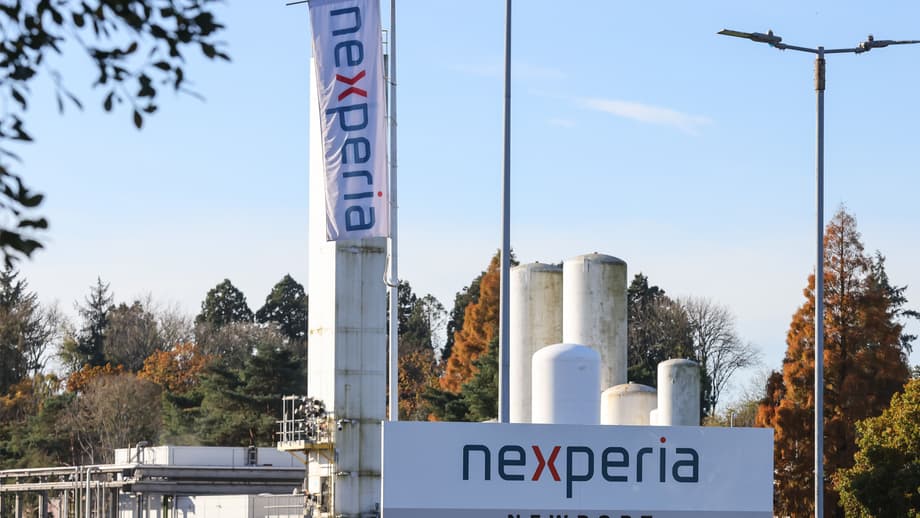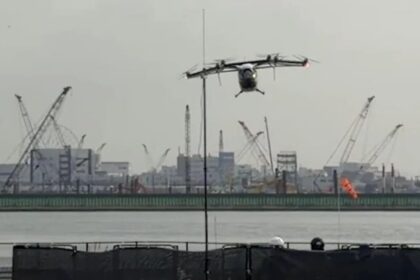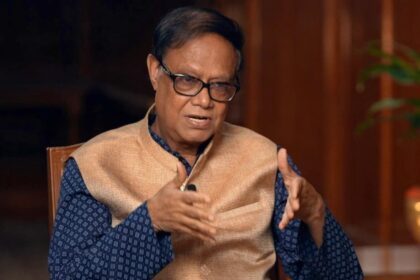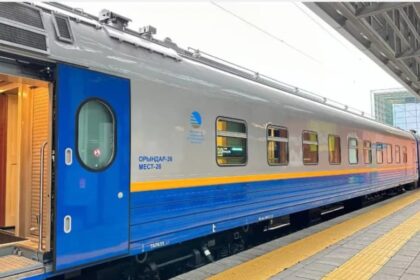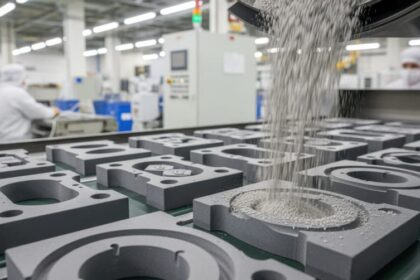A new flashpoint in the chips contest
China has prohibited exports of specific products made by Nexperia inside the country, a sharp response that came days after the Netherlands took control of the Dutch chipmaker to protect critical know how and secure domestic supply. The Chinese Ministry of Commerce issued the order on October 4, stopping shipments of certain finished components and sub assemblies from Nexperia China and its subcontractors. The move directly affects the company’s 80,000 square meter assembly facility in Guangdong, which has fed global customers for years.
- A new flashpoint in the chips contest
- What triggered the Dutch takeover of Nexperia
- China hits back with export controls on Nexperia China
- US pressure and the entity list backdrop
- What Nexperia makes and why it matters
- Market reaction and company shake up
- How export bans and corporate controls ripple through supply chains
- What happens next
- Quick Facts
The tit for tat escalation arrives as governments put national security and industrial policy at the center of chip strategy. It also lands ahead of anticipated trade talks between President Trump and Chinese President Xi Jinping. Each side is moving to strengthen its position, with semiconductors now a prime source of leverage.
Nexperia is headquartered in Nijmegen in the Netherlands. The company makes essential building block chips that sit inside cars, appliances, phones, and servers. These are not the cutting edge processors that power artificial intelligence models. They are diodes, transistors, MOSFETs, logic devices, and power management parts that go into almost everything that has a circuit board. That ubiquity is exactly why governments care about who controls the company and where its products can be shipped.
What triggered the Dutch takeover of Nexperia
The Dutch government invoked the Goods Availability Act, a Cold War era law, to place Nexperia under state supervision for one year. It is a rare intervention intended to ensure the availability of chips in an emergency and to prevent the transfer of crucial technological knowledge out of the country. The measure does not transfer ownership to the state. It gives The Hague the power to block or reverse management decisions it deems risky, including major asset changes, relocations, and key staffing moves.
Officials cited serious governance shortcomings at Nexperia and the risk that know how could be passed to its parent company, Wingtech Technology of China. The Netherlands framed the action as highly exceptional, aimed at safeguarding supplies for European industries that depend on the company’s components, especially in the automotive sector.
Emergency powers under the Goods Availability Act
Under the intervention, Nexperia continues to operate, but major corporate decisions require government approval for up to a year. Authorities can step in to secure lines of production that the state considers vital. The application of this law marks the first time the Netherlands has used these powers in the chip sector, a sign of how central semiconductors have become to economic security.
Court allegations against the chief executive
The intervention coincided with a court action in Amsterdam. The Companies Chamber of the Court of Appeal suspended Nexperia’s chief executive, Zhang Xuezheng, and appointed an independent administrator to take control of nearly all shares during the investigation. Nexperia’s chief financial officer, Stefan Tilger, is serving as interim CEO. Dutch executive Guido Dierick has been appointed as a nonexecutive director.
In its judgment, the court cited evidence of a conflict of interest tied to a Shanghai based wafer supplier called WSS, in which the CEO holds a controlling stake. According to the court, Nexperia was pushed to order as much as 200 million dollars of wafers from WSS for 2025, even though internal needs were closer to 70 to 80 million dollars. The court said this could leave large volumes unprocessed until obsolete, effectively committing the company to buy material that would not be used. The panel also raised concerns over changes to financial controls and the dismissal or resignation of senior finance staff when they objected to those changes.
The Companies Chamber, which is responsible for corporate inquiries, underscored the gravity of the conduct it found.
The court wrote that, for a company the size of Nexperia, such conduct borders on recklessness.
Dutch authorities said the state’s step was highly exceptional and tailored, with the goal of keeping Nexperia’s chips available if Europe faces a supply disruption.
China hits back with export controls on Nexperia China
Beijing’s counter move arrived quickly. On October 4, the Ministry of Commerce issued an export control notice that bans Nexperia China and its subcontractors from exporting specific finished components and sub assemblies produced in China. The order means the Guangdong assembly site cannot ship those parts abroad, forcing the company and its customers to look for alternatives outside China or to adjust production plans.
Nexperia said it is working to persuade authorities in Beijing to allow an exemption. The company wants continued access to international customers for Chinese made parts while the governance dispute is resolved.
In its first public comments after the Dutch action took effect, Nexperia signaled a desire to keep channels open with regulators in China.
Nexperia said it is actively engaging with authorities in Beijing to gain an exemption from the counter measures.
Wingtech, Nexperia’s parent, issued a sharper response to the Dutch decision and appealed for support from Chinese authorities.
Wingtech called the Dutch intervention excessive interference driven by geopolitical bias.
The Chinese export order is narrow in legal terms, focused on defined products made in China, yet the practical effects can be broad. Shipping delays, requalification of parts from other sites, and the need to reroute orders are all likely outcomes. The risk is highest for customers that rely on Chinese assembly for specific Nexperia components that cannot be sourced quickly elsewhere.
US pressure and the entity list backdrop
The Dutch move unfolded against a background of US export controls that have grown tighter over the past year. Wingtech was placed on the US entity list last year. In late September, Washington extended the reach of its restrictions to affiliates that are at least 50 percent owned by companies already on the list. That step drew Nexperia into the US regime and limited shipments of US goods and technology to the company unless a license is granted.
The entity list is administered by the US Department of Commerce. It limits the export or transfer of US items to designated firms that the government says may pose national security or foreign policy concerns. Companies can apply for licenses, but approvals are uncertain and can take time, which disrupts planning for factories that depend on a steady pipeline of materials and tools.
Meeting minutes cited in the Dutch court proceedings show how these US controls intersected with the Nexperia case. According to those notes, US officials told Dutch counterparts in June that a change in Nexperia leadership would likely be necessary to obtain any exemption from US restrictions.
One entry in the minutes stated it is almost certain that the CEO will have to be replaced to qualify for an exemption from the entity list.
Dutch officials, for their part, say the Netherlands made its move on its own grounds. Aukje de Vries, the secretary of state for foreign trade, rejected the suggestion that Washington dictated the decision.
De Vries said the Netherlands makes its own decisions.
What Nexperia makes and why it matters
Nexperia builds high volume, lower complexity parts that are essential for the power, signal, and logic functions in nearly every electronic device. These include diodes, transistors, MOSFETs, analog and logic chips, ESD protection devices, and power management components. In electric vehicles, its parts help manage battery charging, onboard power conversion, and motor control. In servers and data centers, they help regulate voltage and protect circuits that feed processors and memory.
These chips are not headline grabbing processors, but production hiccups can halt assembly lines for cars and appliances. During the pandemic, shortages of inexpensive power and analog chips stopped automakers worldwide. European policymakers see Nexperia’s output as a strategic buffer against a repeat of that experience. That is why a relatively modest sized chipmaker has become a focal point of national security planning.
Market reaction and company shake up
The market reacted quickly to the Dutch intervention. Shares of Wingtech in Shanghai fell around 10 percent after the announcement, reflecting investor concern about constrained control over a key subsidiary and the risk of extended trade friction with Europe.
Inside Nexperia, corporate governance changed overnight. The court suspended the CEO, an administrator took control of nearly all voting shares, and the CFO stepped into the top role on an interim basis. A Dutch industry veteran joined the board as a nonexecutive director. Day to day operations continue at factories in Europe and beyond, but any major decision now requires sign off by The Hague for a period of up to one year.
For employees and suppliers, the message from the Dutch government is continuity with oversight. For customers, the open question is whether Chinese export controls will force redesigns or production transfers, and how fast Nexperia can secure exemptions or shift volumes to facilities outside China.
How export bans and corporate controls ripple through supply chains
Export controls that target specific components can have wide effects. Electronics makers certify parts to strict standards, then lock them into designs. If a part made in China suddenly cannot ship, even a simple diode may need to be replaced with an identical unit from another site. That change can require new testing, documentation, and sign off from safety agencies and customers, which adds weeks or months to timelines.
Nexperia can mitigate some disruption by reallocating orders to sites in Europe or other regions, and by prioritizing high demand automotive parts. The company can also ask customers to accept functionally equivalent parts made outside China. Those steps work only if there is spare capacity and if inventories cover the transition. If not, lead times lengthen, factories slow, and buyers search for substitutes, including from rivals. That is how a targeted export action inside one country can ripple through car plants and electronics factories across continents.
What happens next
Three tracks will shape the next phase. First, Nexperia is seeking a carve out from Beijing’s controls, which would allow continued exports of selected parts from its China operations. The scope and speed of any exemption will determine how much product needs to shift to Europe or other sites. Second, legal and regulatory processes in the Netherlands will continue, including the court’s inquiry into governance. The government’s special powers last up to one year, at which point The Hague can decide whether to extend oversight or step back. Third, the geopolitical context may evolve. Washington’s export controls remain in force, Europe is tightening its own guardrails, and Beijing has shown it is willing to respond in kind.
Observers will also watch political diplomacy. Talks expected later this year between President Trump and President Xi could set the tone for a period of lower tensions or new measures. For companies in the chip sector, the lesson is to diversify production footprints, build inventory buffers for crucial parts, and invest in supply resilience. For governments, the lesson is that even basic chips can become strategic assets when supply is uncertain.
Quick Facts
- China’s Ministry of Commerce on October 4 barred Nexperia China and its subcontractors from exporting specific finished parts and sub assemblies.
- The Netherlands used the Goods Availability Act to place Nexperia under government supervision for up to one year.
- A Dutch court suspended CEO Zhang Xuezheng, transferred control of nearly all shares to an independent administrator, and named CFO Stefan Tilger as interim CEO.
- Dutch executive Guido Dierick was appointed as a nonexecutive director.
- The export block affects an 80,000 square meter Nexperia assembly site in Guangdong.
- Nexperia says it is engaging with Beijing to seek an exemption from the Chinese measures.
- Wingtech, Nexperia’s parent, said the Dutch move was excessive interference driven by geopolitical bias.
- Wingtech shares fell about 10 percent after the Dutch action.
- Minutes cited in Dutch court filings describe US officials saying a leadership change was almost certainly needed for an exemption to the US entity list.
- Talks between President Trump and Chinese President Xi Jinping are expected later this year, with chips high on the agenda.


